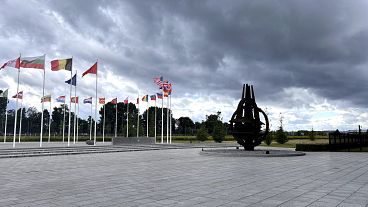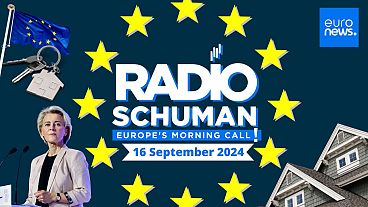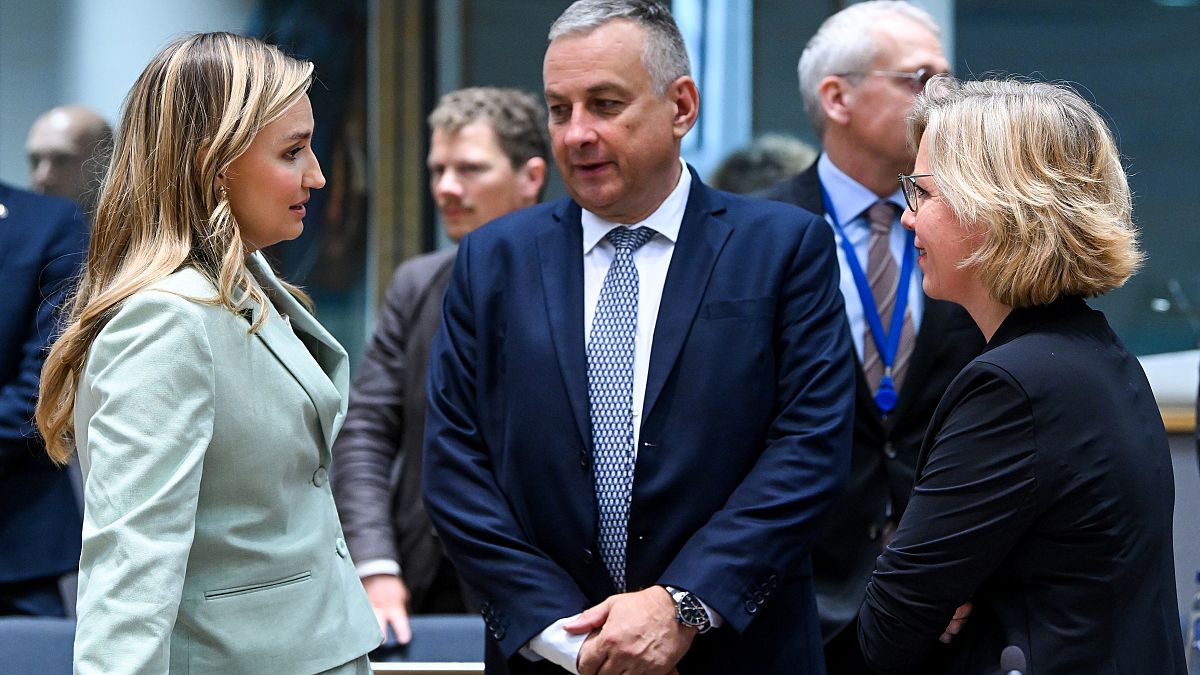Czechia's trade minister and the likely next EU energy commissioner has urged the incumbent Kadri SImson and Berlin, Budapest, Bratislava and Vienna to intensify efforts to wean the bloc off Russian gas
Russian gas should not be allowed into Europe through the back door after the expiry of a gas transit agreement between Kremlin-controlled Gazprom and Ukraine at the end of the year, Czech trade and industry minister Jozef Sikela has suggested in a letter to EU energy commissioner Kadri Simson and his counterparts in Budapest and elsewhere.
Sikela, who is Czechia’s nominee for the next EU executive and tipped to take over Simson’s role, also sent the letter to his counterparts in Austria, Hungary and Slovakia, who remain reliant on imports of Russian gas, and Germany, whose direct connection was definitively broken two years ago when the Nord Stream pipeline was sabotaged.
“Russia repeatedly demonstrated that it is an unreliable trading partner willing to use energy supplies as a weapon to disrupt and destabilize our energy market and the entire economy,” Sikela said in a statement on Thursday (5 September). “It is clear that nothing will change for the duration of its aggression against Ukraine.”
The minister has proposed that reverse gas flows through his country could be used to replace the 40-42m cubic metres of Russian gas that currently flow daily through Ukraine. The “most suitable” alternative supplies could be LNG imports, the Czech trade ministry said, noting that the viability of his plan was increased by Germany’s decision to lift controversial storage fees from the beginning of next year.
"In case gas transit from Russia via Ukraine is halted, replacement supplies must be found primarily with alternative suppliers,” Sikela said. “We need to avoid a situation when we purchase gas that is formally non-Russian, but which could be swapped for Russian gas en route, undermining our efforts to reduce dependency on Russian supplies.”
Sikela said the EU had made “substantial progress” in reducing its dependence on Russia gas – down to 8% last year from over two-fiths before Putin launched his undeclared war on Ukraine in February 2022, but told Simson and fellow ministers that “nevertheless we must intensify our efforts”.
While Hungary has drawn fire from EU partners for actively courting Moscow and striking new gas supply deals since the start of the war, Austria imported a record 98% of its gas from Russia last December, and Slovakia, too, remains heavily dependent.
Austria's Federal Ministry for Climate Action, Environment, Energy, Mobility, Innovation and Technology told Euronews today that it had not yet received Sikela's letter so could not comment directly on its contents.
"However, one thing is for certain: gas supplies and energy dependency from Russia represent a huge economical and security risk," the ministry said in an emailed statement. "It is therefore essential for the security of our country to strengthen the independence of our energy supply."
To that end, the Austrian energy ministry had been "preparing intensively in close coordination with the energy regulator E-Control since the beginning of the Russian war of aggression against Ukraine", it said, noting also that domestic gas consumption had been reduced by almost a quarter over that time.
"Austria's currently available import capacities via Italy and Germany alone amount to around 160 TWh/year, which is around twice Austria's annual gas consumption," the ministry said.
This article has been updated to incude a response from the Austrian government.












